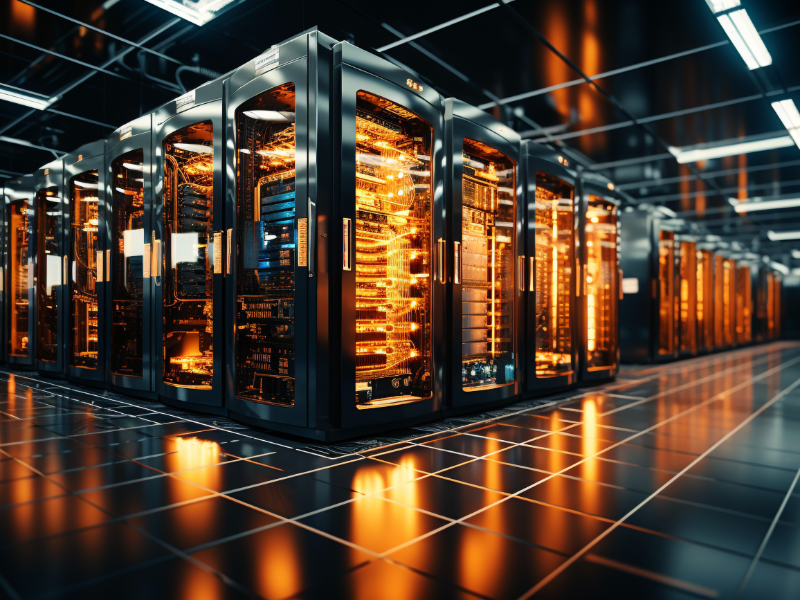Today’s headlines feature major updates from industry giants like Google, Apple, Intel, and Tesla. Highlights include Google’s $3 billion data centre investment, Apple’s AI discussions with OpenAI, Intel’s AI chip production challenges, and Elon Musk’s strategic meetings in China for Tesla.
Fintech
1. After 6-year hiatus, Stripe to start taking crypto payments, starting with USDC stablecoin
Stripe has reintroduced cryptocurrency payments, initially supporting USDC stablecoins on Solana, Ethereum, and Polygon. This decision marks the first time Stripe has accepted crypto payments since discontinuing bitcoin support in 2018 due to volatility. (Tech Crunch)
Internet governance
2. Member update: April 2024
The RIPE NCC General Meeting, set for 22-24 May 2024 in Kraków, will see members vote on key issues including the election of two Executive Board members, adoption of the 2023 Financial Report, and approval of the 2025 Charging Scheme. (RIPE NCC)
IT infrastructure
3. U.S. chip bans not meant to hobble China’s growth, Blinken says
Secretary of State Antony Blinken stated in an interview that U.S. export controls on advanced computing chips to China are not aimed at stifling China’s economic or technological growth. (Reuters)
4. Google plans $3 billion data centre investment in Indiana, Virginia
Google announced a $3 billion investment in a new Indiana data centre campus and expansions in Virginia, driven by surging demand for cloud computing from AI applications. (Reuters)
5. Chipmaker Intel falls as AI competition hurts forecast
Intel’s shares dropped over 12% due to a pessimistic forecast indicating a shift in enterprise spending towards AI-focused chips, affecting demand for its traditional data centre products. (Reuters)
6. Apollo, KKR and Stonepeak may fund Intel’s Ireland facility, Bloomberg reports
Apollo Global Management, KKR & Co., and Stonepeak are considering a multi-billion dollar investment in a joint venture to support Intel’s semiconductor fabrication facility in Ireland. (Bloomberg)
Social
7. Elon Musk visits China as Tesla seeks self-driving technology rollout
Tesla CEO Elon Musk is in Beijing for discussions on introducing Full Self-Driving software and data transfer permissions in China. Musk’s visit aims to potentially expand the availability of FSD, Tesla’s most autonomous software, to its second-largest market. (Newswav)
Tech trends
8. Hyundai Motor, Kia Corp sign agreement with China’s Baidu on connected car technology
Hyundai Motor and Kia have partnered with Baidu to advance connected and self-driving car technologies. This collaboration, solidified by a recent agreement in Beijing, leverages Baidu’s smart cloud to comply with local data regulations and explores new AI-driven business models. (The Korean Times)
9. TikTok general counsel to move to new role focused on fighting US sale
Erich Andersen, TikTok’s general counsel, will transition to special counsel to lead the company’s legal efforts against U.S. legislation mandating ByteDance to divest TikTok. (WASU)
Products
10. The OLED iPad Pro could launch with an M4 chip
Apple is set to introduce the OLED iPad Pro with an M4 chip at its May event, marking its first “truly AI-powered device.” The new iPad Pro will also feature enhanced OLED technology and potentially new accessories like a haptic Apple Pencil. (The Verge)
AI
11. Apple renews talks with OpenAI for iPhone generative AI features, Bloomberg News reports
Apple is in talks with OpenAI to potentially integrate its AI technology into the upcoming iPhone features within iOS 18. (Aol.)
12. Gym teacher accused of using AI voice clone to try to get a high school principal fired
A former athletic director at a Baltimore County high school was arrested for allegedly using AI voice cloning technology to create a fake racist rant in the voice of Pikesville High School’s principal. He faces charges for attempting to discredit the principal. (Tech Times)
IoT
13.Corporate-owned IoT devices are high risk & ‘under siege’, experts warn
The first quarter of 2024 has highlighted AI’s capabilities and limitations, with IoT also emerging as a top corporate priority. Despite IoT’s efficiency benefits, its security vulnerabilities are growing, as evidenced by a 400% increase in IoT malware attacks last year. (Techopedia)

